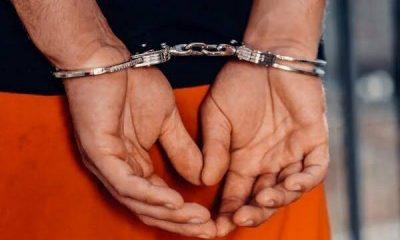411
South Africa Under Siege: Extortion Mafias Thrive Amid Weak Laws

South Africa is witnessing a sharp rise in extortion mafias, fuelled by weak legal frameworks and inadequate law enforcement. Experts warn that if immediate action is not taken, these criminal networks will continue to expand, posing a severe threat to businesses and infrastructure projects.
According to criminology professor Dr. Nirmala Gopal from the University of KwaZulu-Natal, the country’s lack of effective enforcement has allowed extortion mafias to flourish. Speaking to Newsroom Afrika, she highlighted the urgent need for stronger legal measures to dismantle these networks.
The Growing Threat of Organised Crime
Dr. Gopal pointed out that extortion mafias are not a new phenomenon—they have existed for centuries worldwide. However, South Africa’s unique socio-political climate, coupled with corruption, has made it an ideal environment for these criminal groups to thrive.
“What we are seeing playing itself out now in South Africa is an increase in extortion mafias,” she said. “The legal environment allows them to flourish because of its inadequacies.”
The construction and transportation sectors have been particularly affected, with criminal syndicates extorting businesses for protection fees or seizing control of government contracts through intimidation.
A Weak Law Enforcement Response
Despite the alarming rise in these crimes, South Africa’s law enforcement agencies have struggled to effectively curb the problem. Dr. Gopal noted that corruption within the system further enables extortion mafias to operate without consequences.
“Perhaps our law enforcement is not strong enough to actually arrest this,” she said. “The appetite to stop mafias has not been as intensive as the appetite of these groups to continue with it.”
This lack of enforcement has allowed extortion operations to infiltrate even essential services, such as water and sanitation. The so-called “water-tanker mafias” have been reported hijacking state resources, charging communities exorbitant fees for access to water.
Government’s Response and Ongoing Challenges
The South African government has acknowledged the growing problem, with Minister of Public Works and Infrastructure Dean Macpherson declaring war on construction mafias.
Parliament’s Water and Sanitation Portfolio Committee chairperson, Robert Mashego, also revealed that he had received threats from mafia groups after visiting project sites to ensure compliance with proper procedures.
“They’ve said to me, ‘We’ve heard talk of stopping things [use of tankers], so don’t come here again; this is our business,’” he said.
While recent arrests of high-profile extortion leaders mark progress, experts believe that more needs to be done. Dr. Gopal stressed the importance of successful prosecution and multi-agency collaboration to dismantle these criminal networks permanently.
What Needs to Happen Next?
For South Africa to combat extortion mafias effectively, law enforcement must be strengthened, legal frameworks must be tightened, and corruption must be eradicated.
Dr. Gopal emphasized that raising public awareness and encouraging victims to report extortion are crucial steps in tackling the problem.
“Empowerment and awareness are critical to ensure that we have more reporting of this type of crime,” she said.
With organised crime showing no signs of slowing down, South Africa stands at a crossroads. Will the government take decisive action, or will extortion mafias tighten their grip on the economy? The coming months will be crucial in determining the country’s future in the fight against organised crime.
{Source BusinessTech}
Follow Joburg ETC on Facebook, Twitter , TikTok and Instagram
For more News in Johannesburg, visit joburgetc.com


























